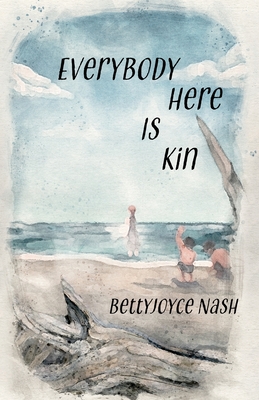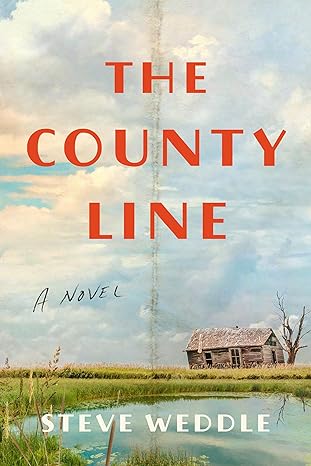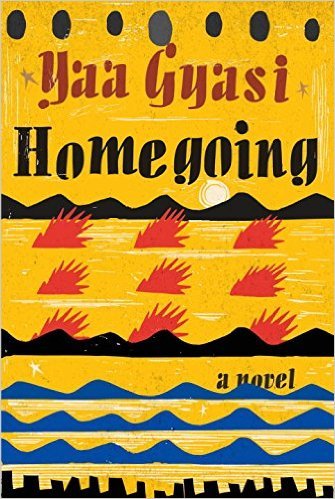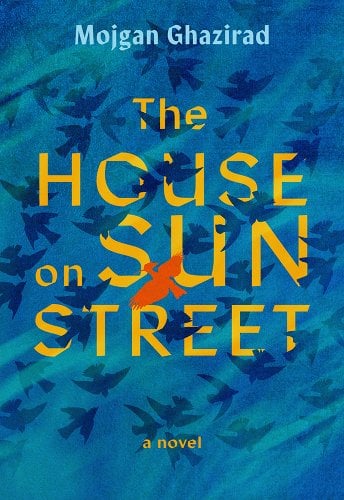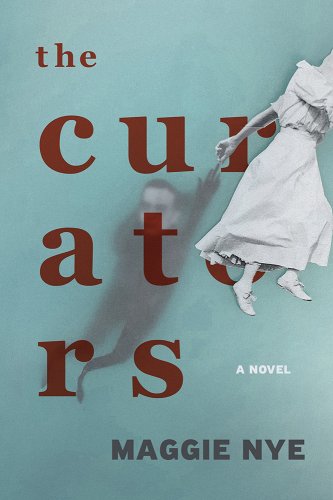Democracy Awakening: Notes on the State of America by Heather Cox Richardson is my book club’s selection for this month. I was keen to read it because I read the author’s daily newsletter that reports important political developments. It really is a good summary of where we stand in America at this moment and how we got here. The first section is called “Undermining Democracy” which explains both the original meaning of “conservatism” and the rise and subsequent attacks on the “liberal consensus” in the country. The second section, “The Authoritarian Experiment,” takes us through the rise of Trump, his embrace of authoritarianism, and his efforts to dismantle the US government. The last section, “Reclaiming America,” rehashes the idea of America and how Lincoln redefined it as deriving not from the Constitution but from the Declaration of Independence. The book ends rather abruptly because, I suppose, we don’t know how the defense of democracy is going to turn out.
Everybody Here is Kin by BettyJoyce Nash is a novel about a family visiting the Atlantic coast of Georgia on the way to Key West, the spot where thirteen-year-old Lucille wants to spend her vacation and birthday. Lucille, sometimes called Lucky, is concerned about the environment and climate change, and wants to see the Keys before the coral reefs die and the islands disappear. They stop at a decrepit motor inn so that Lucille and her mother, Naomi, can scatter Lucille’s father’s ashes, although the mother has an ulterior motive—hooking up with a high school boyfriend. At the motor inn, they encounter Will, a veteran who has a number of his own problems but who is also a talented artist and a good guy who can help out in a pinch, which inevitably comes.
The County Line by Steve Weddle is a very entertaining red-neck noir novel set in Arkansas in the 1930s. Cottonmouth Tomlin has recently returned to his hometown from a shady stint (gun-running?) in Honduras to take over his uncle’s business, a former hunting camp that is now a way-station of sorts for bank robbers and other miscreants. Cottonmouth is a good guy, although not with particularly clean hands. He does his best to make peace with the local powerbrokers and even cooks up a scheme to defend the county from crooks who are even worse. Lots of good details here about the prohibition era, automobiles, and guns.
Homegoing by Yaa Gyasi is a stunning book, painful to read, beautifully imagined and written. It is a family saga that might be called a novel in stories because each chapter is a story about succeeding generations in parallel lines. It begins in Ghana in the 18th Century with two sisters—separated very early and unaware of each other—who land on opposite sides of the slave trade. Their stories and the stories of their descendants have tragic elements but eventually converge in contemporary America. The book is difficult to read because of the horrors of slavery and post-slavery discrimination, the Jim Crow era in the South and northern racial tension that was nearly as bad. And yet, none of it rings false. We know these horrors to be true, but too many people are willing to ignore it or brush it aside as a thing of the past. Required reading!
The House on Sun Street by Mojgan Ghazirad is a novel set mostly in Tehran, Iran, from the point of view of Moji, the child of well-to-do Iranians who are sympathetic to the Shah before the Iranian revolution, but who are forced to live under the new regime. They spend a short time in America but return to Iran because of the hostage crisis in Iran and the harsh treatment the family receives in Alabama where the father is in graduate school. There isn’t much of a plot here. Moji gets into trouble at school, where she otherwise excels, and also becomes infatuated with the librarian and the world of books. At a recent event, I heard the author read from the book and talk about her own childhood in Iran, on which the book is based.
The Curators by Maggie Nye is a novel set in Atlanta in 1915 that I was asked to review (forthcoming, June 2024). It’s part history and part magical realism (although that element might just be teen imagination). The actual event on which it is based was the arrest, conviction, and lynching of a Jewish factory manager after one of his young factory girls is murdered. The anti-Semitism of the lynch mob creates fear in the Jewish community. A group of early teen girls (the “Felicitous Five”) believe the factory manager is innocent and collect clippings from the newspaper, creating an ad hoc museum. But they also create a golem, to protect the community and also to defend the lynched man’s honor. One of the girls becomes obsessed with the golem, which appears to come to life. My full review will appear in the Southern Review of Books.


